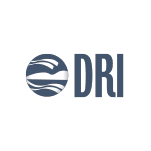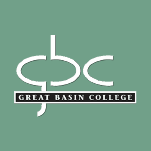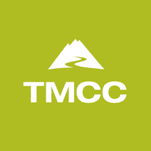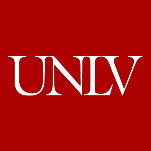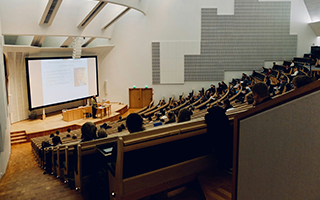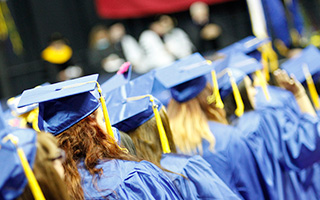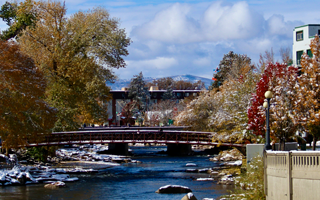COVID-19 Information
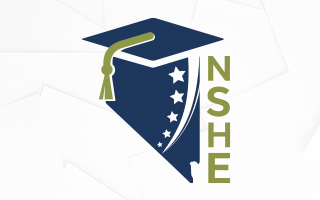
The Nevada System of Higher Education (NSHE) and the Board of Regents continues to work collaboratively with local, county, state, and federal authorities to ensure that all NSHE students, faculty, employees, and visitors of any of NSHE’s eight institutions receive the best available information and practices regarding the coronavirus (COVID-19) to ensure the health of the entire public higher education community.
NSHE Chancellor Reilly is in daily communications with the Presidents of NSHE’s institutions and has also formed an NSHE Internal Advisory COVID-19 Response Team comprised of representatives from each NSHE institution to coordinate and collaborate on systemwide communications and strategies.
Meanwhile, the Centers for Disease Control (CDC) and the Nevada Division of Public and Behavioral Health have set up informational websites that can help answer frequently asked questions, such as what are the symptoms, prevention and treatment, and travel restrictions.
NSHE understands and shares the concerns of its students, faculty, staff and institutions’ communities regarding the outbreak of novel coronavirus (COVID-19). The health and wellbeing of Nevada’s public higher education community continues to be our utmost priority in the midst of this dynamic and evolving situation.
For the NSHE community, we continue to emphasize:
“STAY INFORMED and BE PREPARED”
NSHE institutions have created or are in the process of creating web pages with regularly updated information. These web pages contain the latest information from a variety of sources, as well as tips for faculty, students and staff regarding issues that could arise from coronavirus.
Flexibility
For NSHE faculty we are asking instructors offer students understanding and accommodations such as makeup exams, alternate assignments, or alternate weighting of missed work due to illness. Listen and offer resources if appropriate to students who are anxious or stressed about uncertainties regarding the outbreak. Flexibility is a must for all of us.
Travel Restrictions
As advised by federal and state health authorities, in conjunction with the CDC, NSHE is following new guidelines that stipulate that all individuals returning from or through China, Italy, Iran, Japan and South Korea, must be self-quarantined for 14 days after their return.
Students and staff who recently had their study abroad programs cancelled are all to observe a 14-day self-quarantine upon their return to the United States. These students and faculty have been contacted in an abundance of caution, which mirrors actions taken by institutions across the country and internationally.
If you know someone who is in self-quarantine, please consider supporting them through emails and texts, but respect the quarantine; do not visit them in person.
Suspended Travel Abroad
UNLV and UNR have currently suspended all university-supported travel by faculty, staff, students, guest speakers or visiting scholars to, from or going through China, Iran, Italy, South Korea and Japan.
NSHE is also monitoring alerts from the U.S. State Department and the CDC regarding non-essential travel. In addition, any organization, unit, program, department or college or school hosting guest speakers or visiting scholars from foreign countries in the coming months should also be aware of the CDC’s traveler information.
Spring Break Travel Abroad
Given the dynamic nature of the outbreak of novel coronavirus, students, faculty and staff who are planning on personal travel overseas during the upcoming spring break are strongly encouraged to follow the latest guidelines for travel by visiting CDC’s traveler information.
Please carefully weigh the risks and benefits of any international travel, stay actively alert and monitor changes and developments that may affect your plans. Monitor travel advisories daily, including potential restrictions on border crossings or closed borders. Prepare for the possibility that countries that you visit could decide to implement travel restrictions with short notice, impacting your ability to return to the United States, and to campus. The 14-day self-quarantine period for certain countries could change.
Be aware if you choose to go on personal travel to or through China, Iran, Italy, South Korea, or Japan, you will be required to self-quarantine for 14 days upon your return before returning to campus, work or classes. Faculty and staff will be required to use sick leave or annual leave and follow university policy on finding substitutes for classes. Students will not be given special arrangements for homework, attendance or tests.
Health, Wellness and Prevention
The best line of defense against novel coronavirus is to use the “best practices” associated with the CDC’s prevention guidelines. There is currently no vaccine to prevent coronavirus. The best way to prevent illness is to avoid being exposed to this virus. Everyday preventive actions include:
- Avoid close contact with people who are sick.
- Avoid touching your eyes, nose and mouth.
- Stay home when you are sick.
- Cover your cough or sneeze with a tissue, then throw the tissue in the trash.
- Clean and disinfect frequently touched objects and surfaces using a regular household cleaning spray or wipe.
- Follow CDC’s recommendations for using a facemask.
- CDC does not recommend that people who are well wear a facemask to protect themselves from respiratory diseases, including COVID-19.
- Facemasks should be used by people who show symptoms of COVID-19 to help prevent the spread of the disease to others. The use of facemasks is also crucial for health workers and people who are taking care of someone in close settings (at home or in a health care facility).
- Wash your hands often with soap and water for at least 20 seconds, especially after going to the bathroom; before eating; and after blowing your nose, coughing, or sneezing.
- If soap and water are not readily available, use an alcohol-based hand sanitizer with at least 60% alcohol. Always wash hands with soap and water if hands are visibly dirty.
If You Are Sick
NSHE is encouraging the Nevada public higher education community to be mindful of their own health and contact a health-care provider if they are experiencing any of the known symptoms. Students at NSHE institutions should contact the campus Student Health Center. NSHE institution leadership and faculty are working together to ensure that if students miss class due to illness, opportunities will be provided to make up missed work.
Perspective
We are reminding the state-wide NSHE community to please keep perspective about what is happening, demonstrate empathy to others, and show respect. We must avoid stereotyping or stigmatizing any individuals, ethnicities, or nationalities on our campus communities. There continue to be a number of unknowns, but NSHE is urging everyone to stay calm, stay informed, and be prepared.
Suspended Courses
There are currently no courses within NSHE at any institution that are suspended due to COVID-19. If that should ever become necessary, the President of each NSHE institution will notify the students, faculty, and employees of the impacted campus.
More Information
Please contact each NSHE institution for more information specific to that campus.
If you require information from NSHE System Administration, please contact our communications team at media@nshe.nevada.edu.


